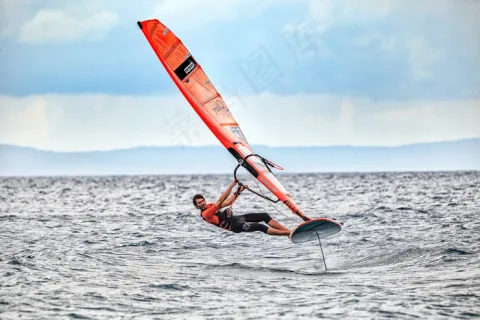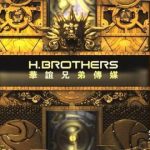音乐的存在有什么意义?
音乐对于人类有何种意义,似乎没有音乐人类也可以活的很好。
哈哈哈
我觉得人类的存在都是没有意义的(狗头)
尼采曾说,没有音乐生命将会是个错误,音乐的意义无论在人文领域还是生心理学领域都已经说明音乐对人的意义,音乐是人情感得对应,生理学领域,音乐活化脑神经,让大脑愉悦同时改变情绪,心理学佛洛依德说人的欲望如沸腾大锅,而艺术可以平息,释放堆积的情感;人文领域,没有音乐或者其他艺术,我们如何深刻得把握历史,做出情感上的深刻体验,人类得过往也只能是冰冷的灵柩。
谢邀,音乐的意义看你怎么编织,怎么赋予。哲学家说过人活在自己编织的意义之网中。
一般说音乐有审美意义与实用意义。实用的可以组织协调集体活动,统一思想,比如劳动耗子,运动员入场曲,各国国歌。也有人认为实用的音乐或者实用的部分不是音乐。比如非洲的鼓语可以传递类似语言的明确信息,不被认为是音乐,当然也不妨碍我们当音乐来欣赏。
可以娱乐,跳舞用不会踩脚。可以提醒路人洒水车来了,如兰花草,如果用喇叭或警报声与兰花草有什么区别,这区别就是音乐的意义之一。
审美的音乐比较高雅,复杂,就不说了。反正人有大脑,有情感,有精神活动,有这些就少不了音乐,有人的地方就有音乐,从印第安到爪哇,从喀麦隆到纽约,没有音乐的世界不是人的世界。
为了作为一个奢侈品羞辱不会它的人。玖鼎貴賓會
“音乐不是奢侈品,不是我们钱包鼓了的时候才来消费的多余物,音乐不是消遣,不是娱乐,音乐是人类生存的基本需要,是让人类生活得有意义的方式之一。语言穷尽之处,音乐可以表达;思维无法触及之处,音乐能够揭示心灵深处的情感。 ”
“关于音乐的真正作用,古希腊人也许是最早对此有所阐述的人类文明之一。他们的表述非常有趣,古希腊人说,音乐和天文学就如同一枚硬币的两面,天文学是研究永存于外部世界的可见物体的学科,音乐则是研究深藏于内心世界的隐秘情感的学科。音乐总有办法发现隐藏在我们心灵深处的那些虽然丰满,却不可见的流动的情感,帮助我们确定自己内心的状态。”
“如果我们是一家医学院,你们必将非常认真地学习切除阑尾,因为某天的凌晨2点,如果有一位急症病人来到诊室,你就有责任挽救这个生命。同学们,某天晚上8点,某人会步入音乐厅,带着疑惑的头脑、受伤的心灵和疲惫不堪的灵魂,他是否能如释重负地走出音乐厅就是你的责任了。”
“如果人类的将来能够获得和平,各种矛盾冲突可以消解,那么我希望艺术家承担这样的使命,因为这是音乐之使然。无论是在纳粹集中营还是‘9·11’的夜晚,只有艺术家才能满足人类精神深处的冀求,抚慰心灵深处的苦痛。”
——波士顿大学音乐系主任,卡尔·伯纳克博士
我觉得,我的父母最担心的一件事情就是,作为一个音乐家我可能得不到这个社会的认可;或者说不会有什么人赏识我。我在中学时成绩很好,理科尤其出色。我的父母认为如果我能够成为一位医生、一位化学家或者一位工程师,都会比我作为一个音乐家得到更多人的认可。我至今还记得,当我宣布自己决定进入音乐学院深造时,我的母亲是这样评价我的:“你这是在浪费你的升学考试(SAT)成绩!”在某种程度上我认为就连我的父母自己都不太确定,音乐到底价值几许,音乐到底能做些什么。然而他们却是热爱音乐的:无论何时,他们总是在听古典音乐。只不过他们并不真正了解音乐的作用。请允许我就这个问题略谈一些我自己的看法。在我们所身处的这个社会里,音乐被归入报纸上的“艺术与娱乐”版面;然而严肃音乐——也就是您的孩子即将学习的这类音乐,却与娱乐扯不上一丝一毫的关系。更确切地说,严肃音乐与大众娱乐是截然不同的两回事,接下来让我们谈谈音乐,谈谈音乐的作用。
关于音乐的真正作用,古希腊人也许是最早对此有所阐述的人类文明之一。他们的表述非常有趣,古希腊人说,音乐和天文学就如同一枚硬币的两面,天文学是研究永存于外部世界的可见物体的学科,音乐则是研究深藏于内心世界的隐秘情感的学科。音乐总有办法发现隐藏在我们心灵深处的那些虽然丰满,却不可见的流动的情感,帮助我们确定自己内心的状态。我们来举几个例子,看看音乐到底是如何发挥它的作用的。
法国作曲家奥利维埃·梅西安创作于1940年的《时间终结四重奏》是音乐史上最伟大的作品之一。当时的梅西安31岁,此时正值法国加入反纳粹战争,梅西安在1940年6月遭到德国纳粹的逮捕,被关押在一所集中营里。
梅西安是幸运的,这所监狱里一名同情他的看守给他提供了纸和一个可以从事创作的地方。更幸运的是在监狱里,梅西安还遇到了同行:一位大提琴家、一位小提琴家和一位单簧管演奏家。于是梅西安就想给这样一个特殊的组合创作一首四重奏。1941年1月,这部作品第一次演出,听众是监狱里的犯人和集中营的看守们。如今,这部作品已成为一部家喻户晓的不朽之作。 我想在座各位都应该多少了解一点纳粹集中营的生活,也许会有这样的疑惑:为什么在这样的条件和环境下还有人可以花时间和精力创作和演奏音乐?集中营里的人们如果能够免遭毒打、不挨冻、不受酷刑折磨就不错了,如果可以找到食物和饮水那就更谢天谢地了,怎么可能还有心思听音乐?其实,在集中营里不仅有音乐,还有诗歌和绘画,像梅西安一样的人不只是一位两位,而是有许多许多,他们都在进行着艺术创作。为什么?越是人们只关注最基本生存的地方,艺术越显示出其本质,而成为生活的核心。集中营里没有钱、没有希望、没有商业、没有娱乐,甚至没有最基本的尊重,但是集中营里绝对不是没有艺术。艺术是生存的一部分;艺术是人类精神的一部分,是人类证明自我价值的必然表现。艺术是人们表达“我还活着,生命是有意义的”的方式之一。
2001年9月的时候,我还住在曼哈顿,12日的那个清晨我一下子对我所从事的艺术有了全新的认识,对音乐与整个世界的关联有了全新的认识。当天上午10点,我像往常一样坐在钢琴旁边准备练习,这只是习惯使然,我并没有刻意为之。我掀开琴盖,翻开乐谱,双手轻抚琴键,但接下来我又收回了双手。我坐在那里想,我所做的这件事情真的有意义么?此时此刻弹奏钢琴难道不是很不合时宜吗?这个城市昨天刚刚发生了一场悲剧,现在弹琴似乎显得那么愚蠢、那么荒谬、那么突兀、那么毫无意义。我为什么要坐在钢琴旁边?作为一个音乐家,这种情况下我应该如何自处?谁会在这个时候需要一个弹钢琴的人呢?我感到自己完全不知所措。
接下来我和所有纽约人一样,度过了非常难熬的一周。我不仅没有碰钢琴,甚至曾闪现这样的念头:我会不会再也不愿意弹奏钢琴了?我开始关注大家都是怎样撑过那段日子的。
至少在我和我的邻居们中间,没有人为了尽快度过那段时间而去打篮球、玩拼字游戏或者打牌。我们不看电视,不去购物,更不会去商业区。据我所见,就在9月11日当晚,纽约市内有组织的第一个大型活动是演唱会。人们在各个消防队门前歌唱,他们纵声高歌《我们一定会胜利》,很多人还唱起了《美丽的亚美利加》。就是在那个星期,纽约爱乐乐团在林肯中心奏响了《勃拉姆斯安魂曲》,这也是我所能记得的当时举办的第一项公共活动。也就是说,广大公众第一次组织起来表达哀思、第一次对那样的历史悲剧抒发情感的方式,是一场音乐会。
也就是从那一刻开始,人们明白了,生活仍然要继续,在那个特殊的夜晚,保卫国家领空安全的责任交给了美国军方,而引领人们走出悲痛的任务却交给了艺术,更确切地说,是交给了音乐。
通过以上这两件事情,我开始明白音乐并不是我们所司空见惯的报纸上艺术和娱乐版面的内容。音乐不是奢侈品,不是我们钱包鼓了的时候才来消费的多余物,音乐不是消遣,不是娱乐,音乐是人类生存的基本需要,是让人类生活得有意义的方式之一。语言穷尽之处,音乐可以表达;思维无法触及之处,音乐能够揭示心灵深处的情感。
在座的各位中或许有人听过塞缪尔·巴伯创作的《弦乐的慢板》,那优美的旋律扣人心弦。也许这首曲子的名字您没有听过,但如果您看过奥利弗·斯通导演的越战电影《野战排》,您应该知道,这部电影所使用的配乐正是《弦乐的慢板》。无论如何,如果您现在知道我所说的这首曲子,您一定会了解它所具有的巨大力量,它可以令你敞开心扉,它可以令你黯然哭泣,它可以触动你心灵深处的隐痛。音乐就如同一位出色的疗伤专家,发掘我们的潜意识,让我们清楚地看见自己的内心世界。
在座各位估计很少有人参加过没有配乐的婚礼吧。婚礼上的音乐也许并不会很多,有些甚至可能还很难听,但至少在婚礼上总归会演奏音乐。有些事情在婚礼上屡见不鲜:参加婚礼的人们也许在心里压抑着各种各样的情感。当婚礼活动中止,歌手开始演唱,乐手开始弹奏,无论那歌声是否动听,无论那乐音是否流畅,只要音乐奏响,总会有30%~40%的人一次、两次、甚至三次地流下眼泪。为什么会这样?就像古希腊人说过的,音乐让我们发现深藏于内心的那些虽然丰满,却不可见的情感,帮助我们调整状态。因此,语言所不能表达的情感,却仍然能通过音乐得到呈现。你能想象在欣赏电影《夺宝奇兵》、《超人》、《星球大战》的时候,只有对白,而没有音乐的状况吗?人们在观看《E.T.》时,就在音乐缓缓响起的那一刻,一些情感丰富的观众也会在同时潸然泪下。这又是为什么?我可以十分肯定地说,如果去掉电影的配乐,人们的反应就会大不一样。正如古希腊人所说的,音乐可以帮助我们理清内心隐秘情感之间的关联。
我还想再举一个例子,关于我生命中最重要的一次音乐会。应该说,到目前为止,我曾参演过的音乐会加在一起快有一千次了。我曾在非常重要的场合演奏音乐:我享受在卡内基音乐厅演奏;我享受在巴黎演奏;我的音乐甚至征服过圣彼得堡的评论家。我也曾为非常重要的人物演奏音乐:权威报纸的音乐评论家、外国元首。然而,我这一生意义最为非凡的一次音乐会却是在中西部地区的一个小镇上的一所疗养院里举行的。
几年前,我和我的密友——一位小提琴演奏家召开音乐会。像往常一样,我们的第一支曲子选择了阿伦·科普兰的《奏鸣曲》。这支曲子创作于二战期间,是为了纪念科普兰的一位好友,一位在战争中不幸被敌人击落而牺牲的年轻飞行员。通常来说,我们不会发给听众曲目单,而是在演奏之前亲自向他们介绍每支曲目。不过,由于我们选择了这首奏鸣曲作为开场,因此决定不多做解释,直接开始演奏,等结束后再补充介绍。
就在我们演奏这首奏鸣曲的同时,我发现一位坐着轮椅、位于音乐厅前排的老人流下了眼泪。不难看出,这位在后来和我有过交谈的老人是一名军人——因为即使他已迈入古稀之年,我仍能从他那修剪齐整的寸头、方方的下巴和他整个的行为举止上看出,他必然经历了相当长的军旅生涯。我惊讶于在那个时候演奏那样一支曲子,竟然会有人为此而感动流泪。但毕竟那不是我第一次在音乐会上看到有人流泪。因此,我们照常演奏完了那支曲子。在我们准备演奏第二支乐曲之前,决定稍微介绍一下这两支曲子。于是,我们谈到了科普兰创作《奏鸣曲》的背景,提到它是为了纪念一位失事的飞行员。那一刻,坐在前排的老人突然情绪失控,他离开了音乐厅。坦率地讲,我以为他再也不会回来了。可后来他竟然来到后台,泪流满面地向我们讲述了他离场的原因。
他说了这样一段话:“二战期间,我曾是一名飞行员。在一次执行任务时,我们这组的一架飞机被击中了。我看见我的朋友在即将坠机之前弹出了飞机,他的降落伞成功打开了。可是,原本追击我们的日本战斗机当时却掉头飞了过去,朝着我朋友的降落伞扫射,想让飞行员和降落伞分离。我只能眼睁睁地看着我的朋友掉进了大海,我知道他不会再回来了。过了这么多年,我已经很久没有再想起这件事情。然而当你们演奏第一支曲子的时候,这段回忆却突然鲜活地浮现在我的眼前。我不明白发生了什么,不明白自己为什么会在这个时候想起这件事情。当你们介绍说,这支曲子是为了纪念一名牺牲的飞行员,那一刻我变得难以控制自己的情感。音乐怎么会如此神奇?音乐怎么会发现我内心的情感?唤起我过去的回忆?”
还记得古希腊人说的话吗?音乐可以将人们内心世界各种隐秘的情感紧密相连。那场在疗养院内举办的音乐会,可以说是我人生中最重要的一次演奏。对我而言,为这位老兵演奏,将他与阿伦·科普兰联系在一起,将他们对于逝去战友的记忆联系在一起,帮助他怀念、哀悼自己的朋友,就是我的工作。而这也正是音乐的意义。
几天后,我将面对今年的新生致欢迎词。下面的一段话是我准备在那时对新生们说的,我要让在座的各位的儿女们谨记自己的责任:
“如果我们是一家医学院,你们必将非常认真地学习切除阑尾,因为某天的凌晨2点,如果有一位急症病人来到诊室,你就有责任挽救这个生命。同学们,某天晚上8点,某人会步入音乐厅,带着疑惑的头脑、受伤的心灵和疲惫不堪的灵魂,他是否能如释重负地走出音乐厅就是你的责任了。”
同学们,你们进入这所学校,不是为了成为一个娱乐大众的人。你们也无需销售自己。事实上,你们没有任何东西需要向别人销售。音乐家的工作不是售卖二手车,也不是售卖任何产品。我不是一个娱乐大众的人,我更像是一名医护人员,一名消防员,一名救援人员。你们进入这所学校,是为了慰藉人们的心灵,治疗人们精神世界的各种病痛。你们的工作是深入人们的心,关照那里的疾苦,确保人们保持平和的心境,幸福安康地生活下去。
在座各位,坦诚地说,我希望你们不只是精通音乐,我希望你们能去拯救地球,让地球没有战争,充满和谐与安宁,人们之间互相理解,平等以待。我不希望这些努力来自于政府、军队或商人,我也不希望来自于宗教,目前看来宗教是引起最多战争的根源。如果人类的将来能够获得和平,各种矛盾冲突可以消解,那么我希望艺术家承担这样的使命,因为这是音乐之使然。无论是在纳粹集中营还是‘9·11’的夜晚,只有艺术家才能满足人类精神深处的冀求,抚慰心灵深处的苦痛。”
2004年9月1日
(由中国对外翻译出版公司提供译稿)
欢迎词英语原文:
One of my parents' deepest fears, I suspect, is that society would not properly value me as a musician, that I wouldn't be appreciated. I had very good grades in high school, I was good in science and math, and they imagined that as a doctor or a research chemist or an engineer, I might be more appreciated than I would be as a musician. I still remember my mother's remark when I announced my decision to apply to music school—she said, "you're wasting your SAT scores!" On some level, I think, my parents were not sure themselves what the value of music was, what its purpose was. And they loved music: they listened to classical music all the time. They just weren't really clear about its function. So let me talk about that a little bit, because we live in a society that puts music in the "arts and entertainment" section of the newspaper, and serious music, the kind your kids are about to engage in, has absolutely nothing whatsoever to do with entertainment, in fact it's the opposite of entertainment. Let me talk a little bit about music, and how it works.
One of the first cultures to articulate how music really works were the ancient Greeks. And this is going to fascinate you: the Greeks said that music and astronomy were two sides of the same coin. Astronomy was seen as the study of relationships between observable, permanent, external objects, and music was seen as the study of relationships between invisible, internal, hidden objects. Music has a way of finding the big, invisible moving pieces inside our hearts and souls and helping us figure out the position of things inside us. Let me give you some examples of how this works.
One of the most profound musical compositions of all time is the Quartet for the End of Time written by French composer Olivier Messiaen in 1940. Messiaen was 31 years old when France entered the war against Nazi Germany. He was captured by the Germans in June of 1940 and imprisoned in a prisoner-of-war camp.
He was fortunate to find a sympathetic prison guard who gave him paper and a place to compose, and fortunate to have musician colleagues in the camp, a cellist, a violinist, and a clarinetist. Messiaen wrote his quartet with these specific players in mind. It was performed in January 1941 for four thousand prisoners and guards in the prison camp. Today it is one of the most famous masterworks in the repertoire.
Given what we have since learned about life in the Nazi camps, why would anyone in his right mind waste time and energy writing or playing music? There was barely enough energy on a good day to find food and water, to avoid a beating, to stay warm, to escape torture—why would anyone bother with music? And yet—even from the concentration camps, we have poetry, we have music, we have visual art; it wasn't just this one fanatic Messiaen; many, many people created art. Why? Well, in a place where people are only focused on survival, on the bare necessities, the obvious conclusion is that art must be, somehow, essential for life. The camps were without money, without hope, without commerce, without recreation, without basic respect, but they were not without art. Art is part of survival; art is part of the human spirit, an unquenchable expression of who we are. Art is one of the ways in which we say, "I am alive, and my life has meaning."
In September of 2001 I was a resident of Manhattan. On the morning of September 12, 2001 I reached a new understanding of my art and its relationship to the world. I sat down at the piano that morning at 10 AM to practice as was my daily routine; I did it by force of habit, without thinking about it. I lifted the cover on the keyboard, and opened my music, and put my hands on the keys and took my hands off the keys. And I sat there and thought, does this even matter? Isn't this completely irrelevant? Playing the piano right now, given what happened in this city yesterday, seems silly, absurd, irreverent, pointless. Why am I here? What place has a musician in this moment in time? Who needs a piano player right now? I was completely lost.
And then I, along with the rest of New York首存彩金优惠 , went through the journey of getting through that week. I did not play the piano that day, and in fact I contemplated briefly whether I would ever want to play the piano again. And then I observed how we got through the day.
At least in my neighborhood, we didn't shoot hoops or play Scrabble. We didn't play cards to pass the time, we didn't watch TV, we didn't shop, we most certainly did not go to the mall. The first organized activity that I saw in New York, on the very evening of September 11th, was singing. People sang. People sang around fire houses, people sang "We Shall Overcome". Lots of people sang America the Beautiful. The first organized public event that I remember was the Brahms Requiem, later that week, at Lincoln Center, with the New York Philharmonic. The first organized public expression of grief, our first communal response to that historic event, was a concert. That was the beginning of a sense that life might go on. The US Military secured the airspace, but recovery was led by the arts, and by music in particular, that very night.
From these two experiences, I have come to understand that music is not part of "arts and entertainment" as the newspaper section would have us believe. It's not a luxury, a lavish thing that we fund from leftovers of our budgets, not a plaything or an amusement or a pass time. Music is a basic need of human survival. Music is one of the ways we make sense of our lives, one of the ways in which we express feelings when we have no words, a way for us to understand things with our hearts when we can't with our minds.
Some of you may know Samuel Barber's heart wrenchingly beautiful piece Adagio for Strings. If you don't know it by that name, then some of you may know it as the background music which accompanied the Oliver Stone movie Platoon, a film about the Vietnam War. If you know that piece of music either way, you know it has the ability to crack your heart open like a walnut; it can make you cry over sadness you didn't know you had. Music can slip beneath our conscious reality to get at what's really going on inside us the way a good therapist does.
Very few of you have ever been to a wedding where there was absolutely no music. There might have been only a little music, there might have been some really bad music, but with few exceptions there is some music. And something very predictable happens at weddings—people get all pent up with all kinds of emotions, and then there's some musical moment where the action of the wedding stops and someone sings or plays the flute or something. And even if the music is lame, even if the quality isn't good, predictably 30 or 40 percent of the people who are going to cry at a wedding cry a couple of moments after the music starts. Why? The Greeks. Music allows us to move around those big invisible pieces of ourselves and rearrange our insides so that we can express what we feel even when we can't talk about it. Can you imagine watching Indiana Jones or Superman or Star Wars with the dialogue but no music? What is it about the music swelling up at just the right moment in ET so that all the softies in the audience start crying at exactly the same moment? I guarantee you if you showed the movie with the music stripped out, it wouldn't happen that way. The Greeks. Music is the understanding of the relationship between invisible internal objects.
I'll give you one more example, the story of the most important concert of my life. I must tell you I have played a little less than a thousand concerts in my life so far. I have played in places that I thought were important. I like playing in Carnegie Hall; I enjoyed playing in Paris; it made me very happy to please the critics in St. Petersburg. I have played for people I thought were important; music critics of major newspapers, foreign heads of state. The most important concert of my entire life took place in a nursing home in a small Midwestern town a few years ago.
I was playing with a very dear friend of mine who is a violinist. We began, as we often do, with Aaron Copland's Sonata, which was written during World War II and dedicated to a young friend of Copland's, a young pilot who was shot down during the war. Now we often talk to our audiences about the pieces we are going to play rather than providing them with written program notes. But in this case, because we began the concert with this piece, we decided to talk about the piece later in the program and to just come out and play the music without explanation.
Midway through the piece, an elderly man seated in a wheelchair near the front of the concert hall began to weep. This man, whom I later met, was clearly a soldier—even in his 70's, it was clear from his buzz-cut hair首存彩金活动, square jaw and general demeanor that he had spent a good deal of his life in the military. I thought it a little bit odd that someone would be moved to tears by that particular movement of that particular piece, but it wasn't the first time I've heard crying in a concert and we went on with the concert and finished the piece.
When we came out to play the next piece on the program, we decided to talk about both the first and second pieces, and we described the circumstances in which the Copland was written and mentioned its dedication to a downed pilot. The man in the front of the audience became so disturbed that he had to leave the auditorium. I honestly figured that we would not see him again, but he did come backstage afterwards, tears and all, to explain himself.
What he told us was this: "During World War II, I was a pilot, and I was in an aerial combat situation where one of my team's planes was hit. I watched my friend bail out, and watched his parachute open, but the Japanese planes which had engaged us returned and machine gunned across the parachute cords so as to separate the parachute from the pilot, and I watched my friend drop away into the ocean, realizing that he was lost. I have not thought about this for many years, but during that first piece of music you played, this memory returned to me so vividly that it was as though I was reliving it. I didn't understand why this was happening, why now, but then when you came out to explain that this piece of music was written to commemorate a lost pilot, it was a little more than I could handle. How does the music do that? How did it find those feelings and those memories in me?"
Remember the Greeks: music is the study of invisible relationships between internal objects. The concert in the nursing home was the most important work I have ever done. For me to play for this old soldier and help him connect, somehow, with Aaron Copland, and to connect their memories of their lost friends, to help him remember and mourn his friend, this is my work. This is why music matters.
What follows is part of the talk I will give to this year's freshman class when I welcome them a few days from now. The responsibility I will charge your sons and daughters with is this:
"If we were a medical school, and you were here as a med student practicing appendectomies, you'd take your work very seriously because you would imagine that some night at two AM someone is going to waltz into your emergency room and you're going to have to save their life. Well, my friends, someday at 8 PM someone is going to walk into your concert hall and bring you a mind that is confused, a heart that is overwhelmed, a soul that is weary. Whether they go out whole again will depend partly on how well you do your craft.
You're not here to become an entertainer, and you don't have to sell yourself. The truth is you don't have anything to sell; being a musician isn't about dispensing a product, like selling used cars. I'm not an entertainer; I'm a lot closer to a paramedic, a firefighter, a rescue worker. You're here to become 大众娱乐 a sort of therapist for the human soul, a spiritual 大众娱乐 version of a chiropractor, physical therapist, someone who works with our insides to see if they get things to line up, to see if we can come into harmony with ourselves 大众娱乐 and be healthy and happy and well.







